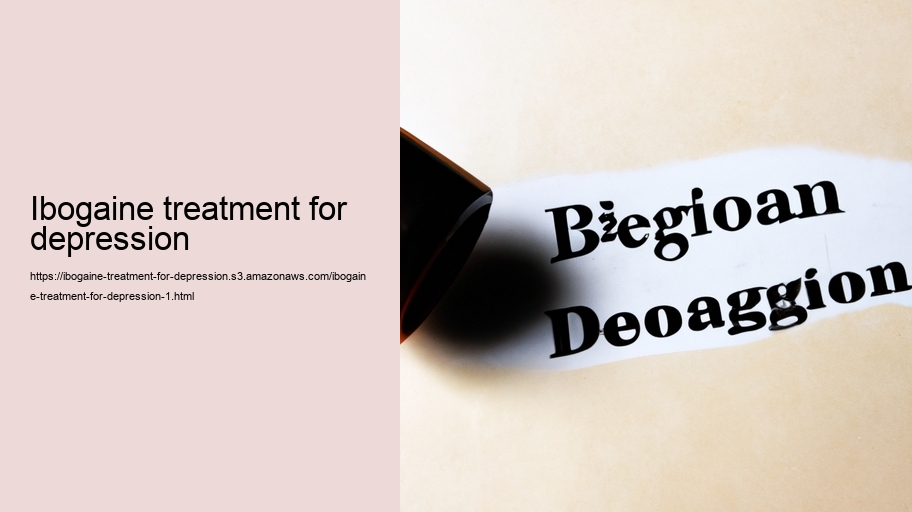Ibogaine Treatment for Depression: A Journey to the Mind's Healing Pathways
Depression is a relentless mental storm that can darken every aspect of human existence. It is an ailment that does not discriminate, affecting millions across the globe with its burdensome cloak of sadness, fatigue, and hopelessness. Amidst the plethora of treatments—ranging from traditional psychotherapy to pharmaceutical interventions—a controversial yet potentially transformative therapy has emerged: ibogaine treatment.
Ibogaine is a naturally occurring psychoactive compound found in the roots of the African shrub Tabernanthe iboga. Traditionally used in spiritual ceremonies by indigenous peoples in West Africa, ibogaine has caught the attention of Western medicine due to its unique properties that some suggest could provide relief for those suffering from depression.
The journey towards considering ibogaine as a viable treatment option for depression often begins after conventional methods have failed or provided insufficient relief. Desperation becomes the compass that leads patients to explore this unconventional path, one mired with legal and safety concerns, but also one illuminated by anecdotal testimonies touting transformational experiences.
Unlike typical antidepressants which typically manage symptoms through neurotransmitter regulation over time, ibogaine promises a more rapid and profound experience. It operates on multiple levels within the brain, interacting primarily with serotonin and opioid receptors—key players in mood regulation as well as addiction patterns. This multi-targeted approach has led researchers to hypothesize that ibogaine could reset neural circuits and offer a fresh start for those entangled in depressive thoughts.
However, it would be intellectually dishonest not to mention the controversy surrounding this substance. Ibogainetreatment remains illegal or sits in legal gray areas in many countries around the world due to its classification as a Schedule I drug in places like the United States. Moreover, there are significant risks associated with its use; it can lead to cardiac complications among other potential side effects. The lack of comprehensive clinical trials means we have limited scientific evidence on safety and efficacy.
Yet despite these challenges and uncertainties, individuals continue to seek out this treatment under controlled settings where legal—often traveling great distances at considerable expense—to embark on what many describe as a life-altering voyage into their own psyche.
During an ibogainetreatment session—which should always be conducted under medical supervision—the individual undergoes an intense psychotherapeutic exploration that can last several hours or even days. Reports suggest it induces a dreamlike state wherein users confront past traumas, unresolved emotional issues, and come face-to-face with personal demons contributing to their depressive state.
It’s important here not only to romanticize this inner odyssey but also acknowledge its intensity; not all journeys are gentle or entirely positive. Experiencing such vivid introspection can be unsettling; however, advocates argue that it's through these revelations that healing begins—a cathartic release enabling one to process and move beyond ingrained psychological pain.
Critics will rightly point out that personal accounts do not equate scientific validation—and they have reason on their side. There is still so much we don’t understand about how ibogaineworks and who it might benefit most. Nevertheless, preliminary research including small-scale studies suggests potential for treating various conditions including depression particularly when combined with comprehensive post-treatment support.
In conclusionto consideriboganietreatmentfordepressionistostepintoavastunknown.Itisaninvitationtoreckonwiththedeep-seatedorigins of one’s despair but also an admission of caution given our limited grasp on its implications both beneficialand adverse.The promiseofa single transformativeexperienceasacure-allisenticingyetwe musn'tsidesteptheinherentrisksinvolvedoroverlook theneedformorediligentresearch.Inthelandscapewherelightstruggles topiercethefogofmentalillnessiboganineemergesnotasan assured beaconbutas aflickeringflameluringuswithitspotentialtopave anewpathfortreatingdepression—oneilluminatedbyhopebutshadowedbyuncertaintyandskepticism.Abalancedapproachtowardsunderstandingandpossiblyintegratingiboganineintodepressiontreatmentscouldonedaychangethelivesofmany—ifhandledwithcare,respect,andscientificrigor.
